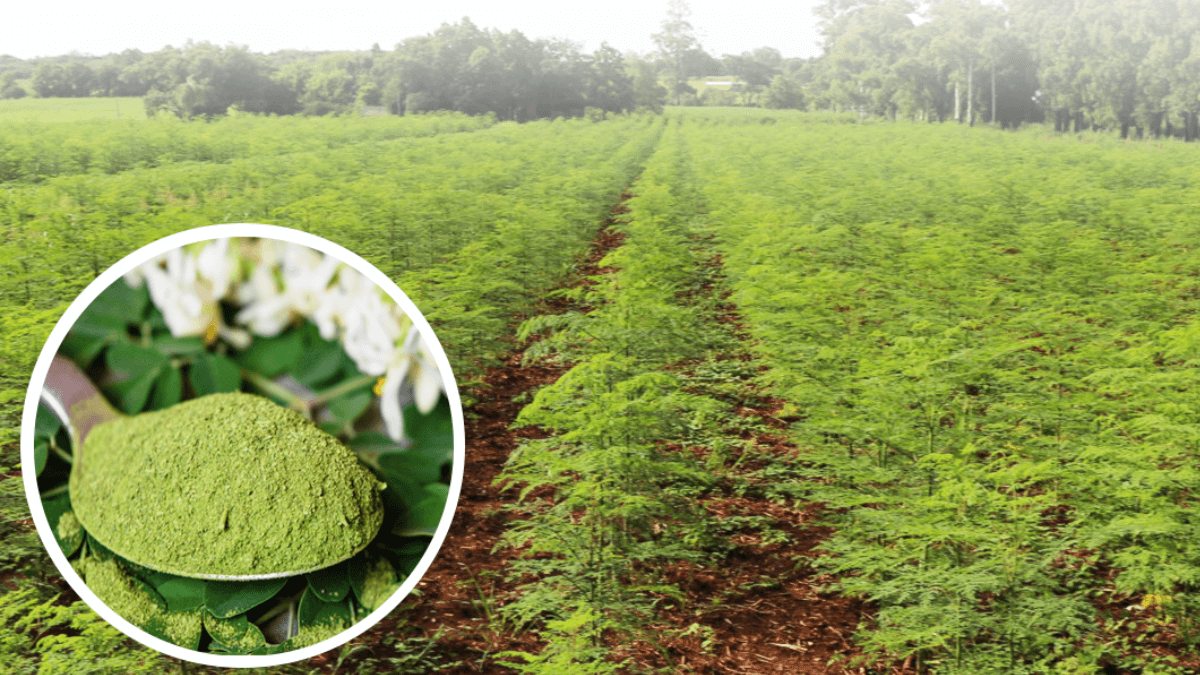News in brief:
– According to a farming association, Nigeria can generate ₦1 trillion monthly through moringa farming by engaging 50 million unemployed citizens.
– It advocates for government support in providing inputs and highlights the economic, environmental, and industrial benefits of cultivating the crop.
The Moringa Production, Marketers, and Farmers Welfare and Empowerment Association has revealed that Nigeria could generate up to ₦1 trillion monthly through moringa farming, provided it receives support from the federal government.
Michael Ashimashiga, the association’s chairman, made this assertion during a press conference in Abuja. He stated that the projected revenue could be achieved by engaging 50 million unemployed Nigerians in moringa cultivation, with the government supporting the initiative through improved seedlings, fertilisers, and other essential farming inputs.
The economic potential of moringa farming
Ashimashiga highlighted that moringa farming has the potential to generate $3.75 billion (₦3.75 trillion) monthly for farmers, while the Federal Government could earn $650 million (₦650 billion) in revenue during the same period.
“Moringa farmers will generate about $1.875 per kilogram of moringa leaves monthly. The government stands to earn $0.30 per kilogram, which translates to approximately ₦1 trillion monthly,” he explained.
A single plot of moringa, according to Ashimashiga, could yield 20 kilograms, with each kilogram valued at ₦2,500.
He also emphasised that widespread moringa cultivation could tackle critical issues such as food insecurity, unemployment, and Nigeria’s dependency on external borrowing.
“A country that empowers and utilises its manpower will not need to borrow to develop its infrastructure,” he remarked.
Combatting climate change through sustainable farming
The association also raised concerns about the adverse effects of using chemicals in farming, linked to climate change and global warming. Ashimashiga noted that such practices have impacted agricultural funding and production, urging a shift toward sustainable farming methods like moringa cultivation.
To address these challenges, the association, in collaboration with Eden Group, has developed a range of agricultural inputs, including improved seeds and seedlings, equipment leasing, and consultancy services.
Ashimashiga urged government agencies and stakeholders to explore the potential of moringa farming as a source of industrial raw materials for pharmaceuticals, food production, animal feed, and other sectors.



